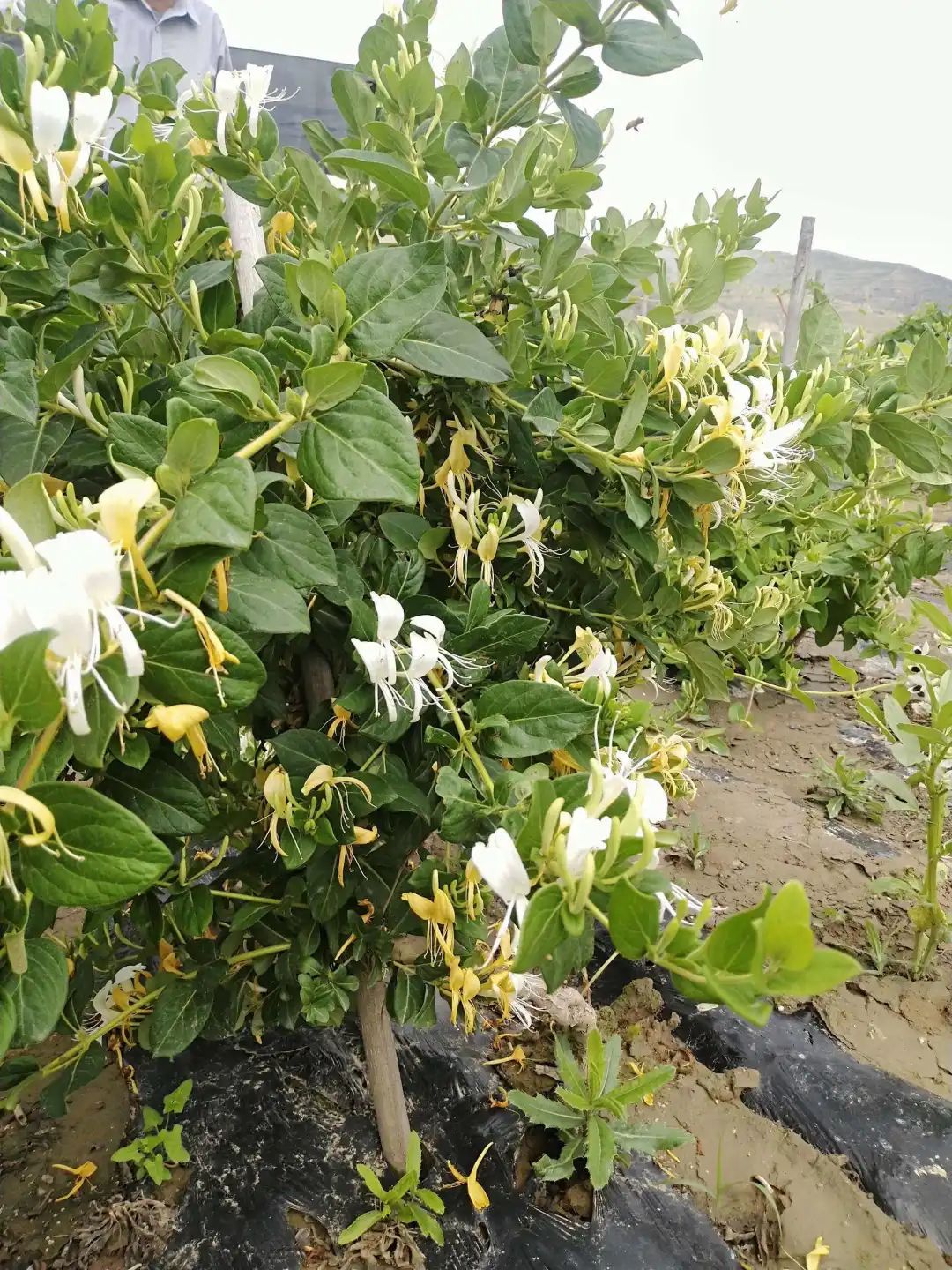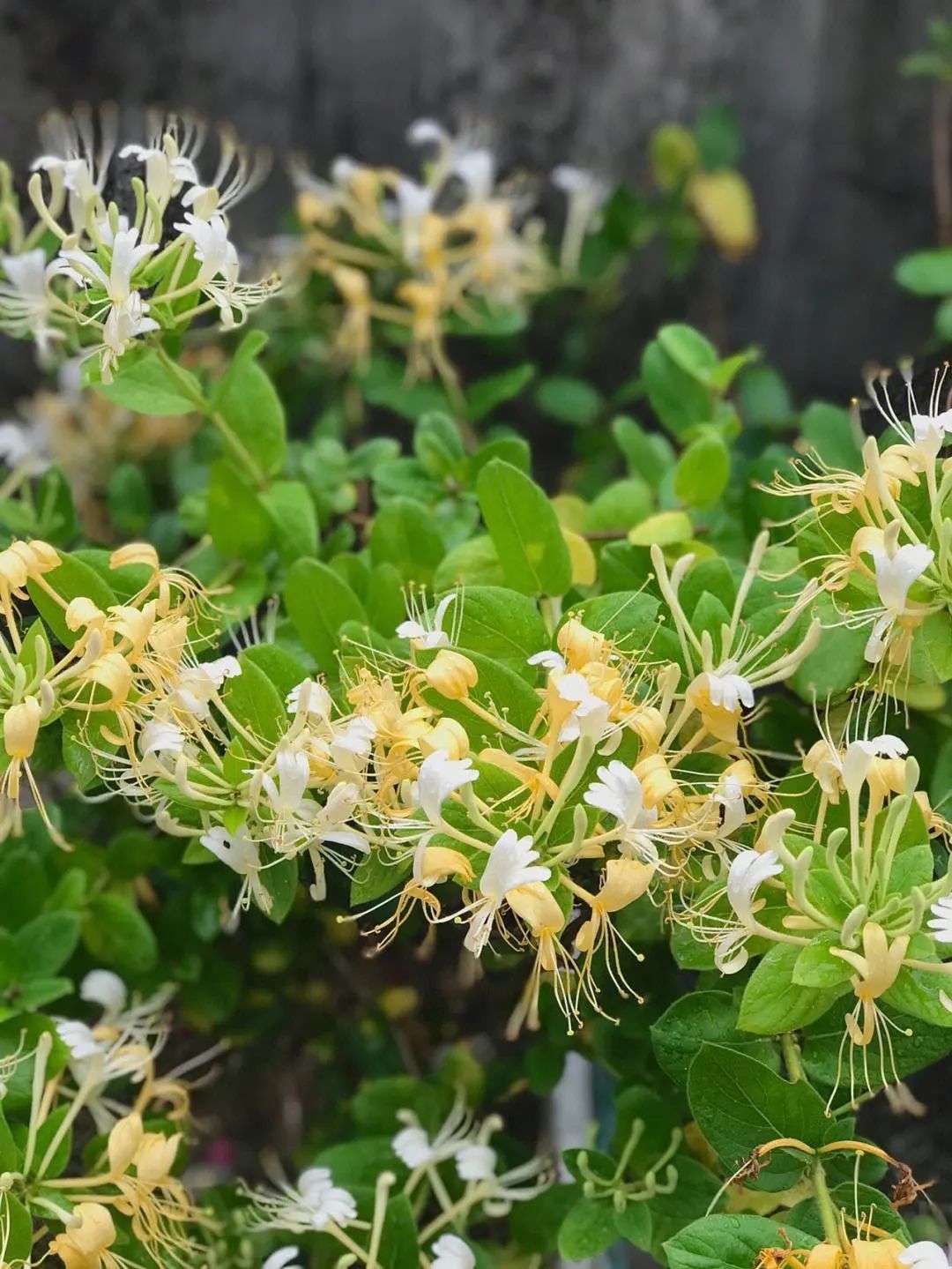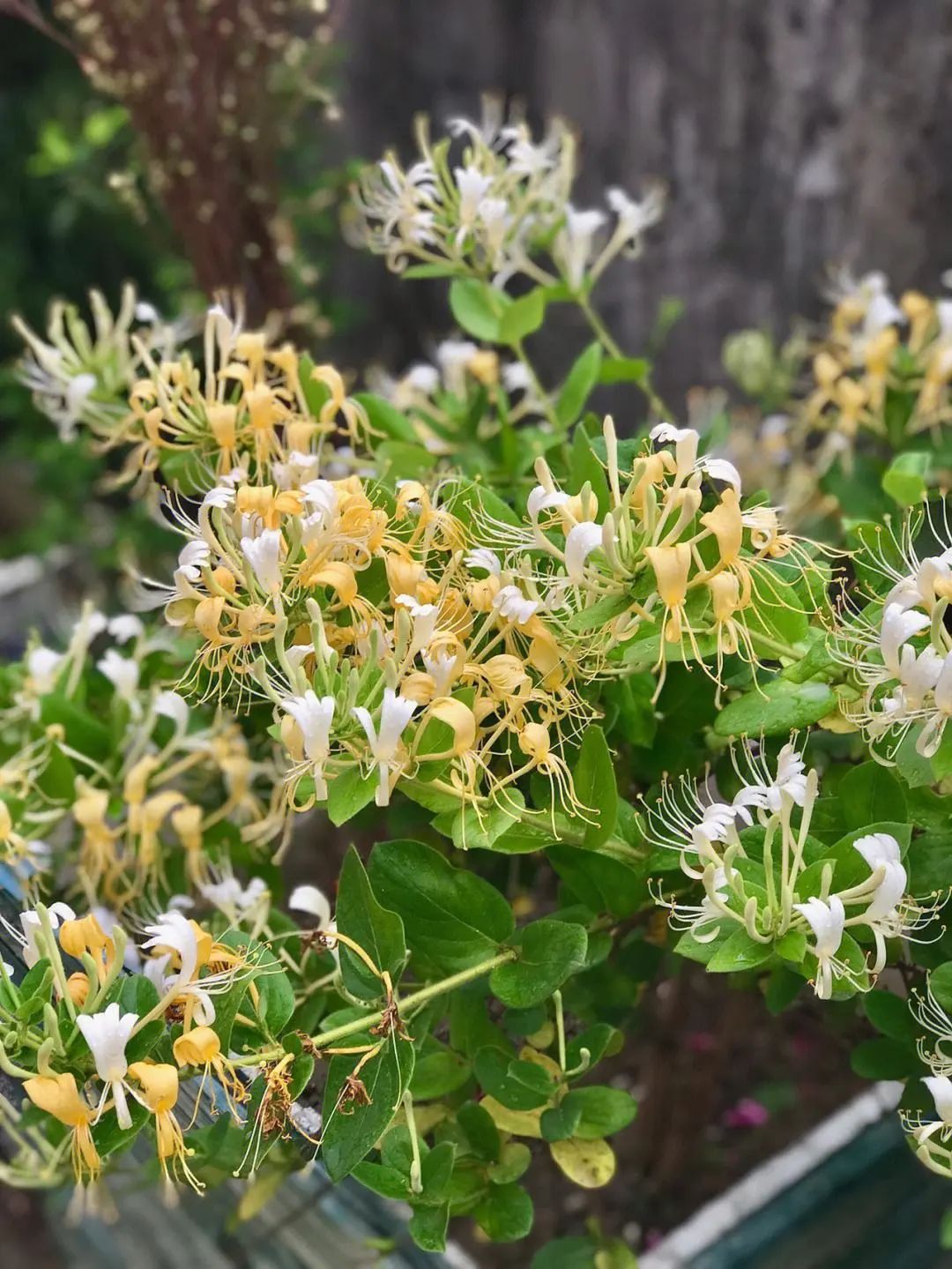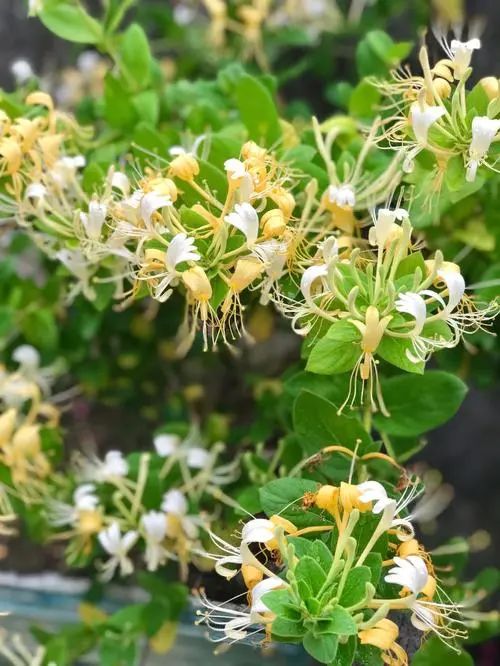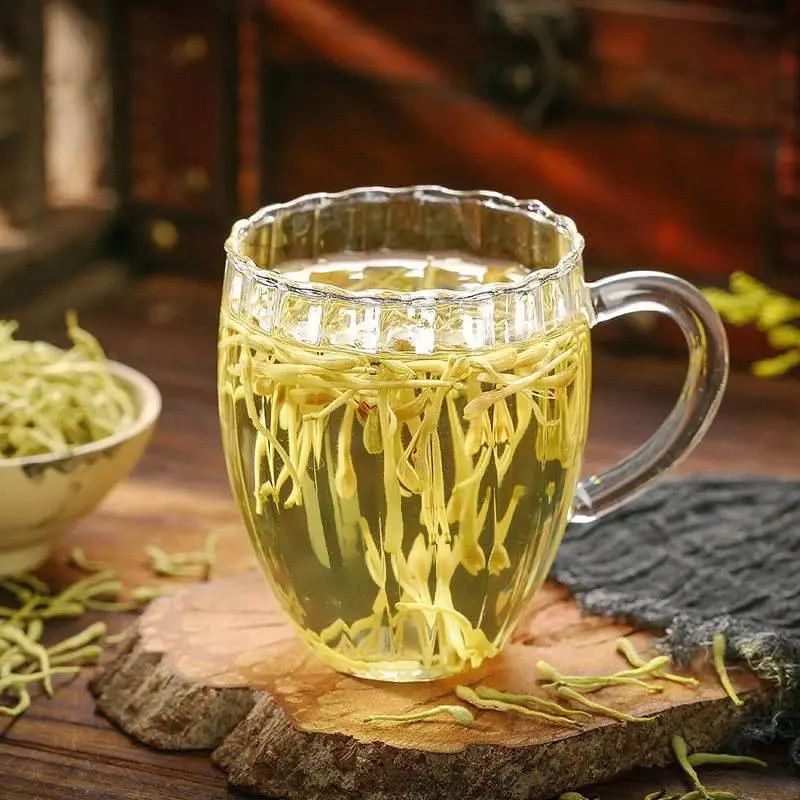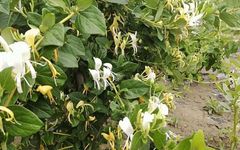Condition Analysis: Honeysuckle (Jin Yin Hua) is classified as a heat-clearing herb, with a sweet and cold nature. It has the effects of clearing heat and detoxifying, as well as dispersing wind-heat. It is primarily used for external wind-heat and the initial stages of warm diseases. This herb is sweet, cold, and aromatic, effectively dispersing heat evil from the lung meridian, clearing heat toxins from the heart and stomach, and is often used in combination with Lian Qiao (Forsythia), Bo He (Mint), and Niu Bang Zi (Burdock Seed). If heat enters the nutritive and blood levels, causing a crimson tongue and mental confusion, it is commonly combined with Sheng Di (Rehmannia) and Huang Lian (Coptis). For heat toxin dysentery, it is often used with Huang Qin (Scutellaria) and Bai Tou Weng (Pulsatilla). For carbuncles and swellings, it is frequently combined with Bai Zhi (Angelica Dahurica).
Honeysuckle has a sweet and cold nature and is associated with the lung, heart, and spleen meridians. Its effects and functions are as follows: 1. Honeysuckle is an aromatic herb, thus it is good at dispersing lung phlegm, residual heat in the lung meridian, and can treat external wind-heat or the initial symptoms of warm diseases such as fever, sore throat, and thirst; 2. Honeysuckle has heat-clearing, detoxifying, and blood-cooling properties, making it effective for treating heat toxin dysentery and purulent blood diarrhea, and can be effective when decocted as a concentrated soup; 3. Honeysuckle exhibits broad-spectrum antibacterial properties, showing strong inhibition against pathogenic bacteria such as Staphylococcus aureus and Shigella, and can effectively suppress leptospirosis, influenza, and viruses; 4. Honeysuckle can enhance the phagocytic ability of white blood cells, thus boosting immunity. The chlorogenic acid in honeysuckle is bioactive and, upon entering the body, can promote metabolism and regulate bodily functions, thereby helping to improve resistance and immunity; 5. The active components in honeysuckle can combine with cholesterol, reducing its absorption in the intestines, lowering cholesterol synthesis in the blood, and increasing blood flow, effectively preventing risk factors for myocardial infarction or cardiovascular diseases; 6. The active components in honeysuckle have significant anti-inflammatory and antipyretic effects, effectively promoting the release of adrenal cortex hormones, thus inhibiting various inflammatory and swelling phenomena; 7. Contraindications and side effects of honeysuckle: Patients with spleen and stomach deficiency and cold should generally avoid it due to its cold nature.
